(31317 products available)





































































































































































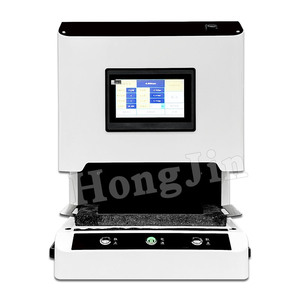
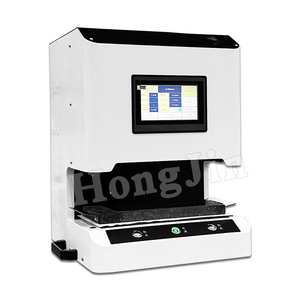
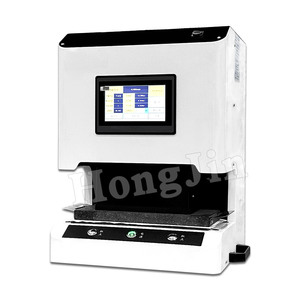
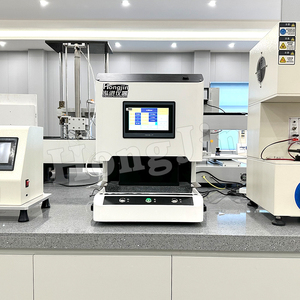
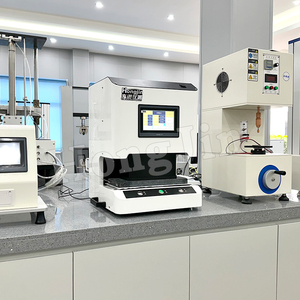
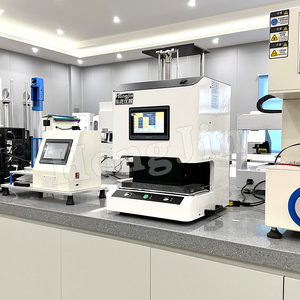
























An automatic measuring machine is any device that measures or quantifies variables without human intervention. Here are some types of automatic measuring machines.
Flow meter
A flow meter is an automatic measuring machine that measures the flow rate of gases and liquids. Some flow meters are automated to record flow rates without human input. Flow meters can be installed on pipelines carrying water, crude oil, and other fluids. Additionally, there are different types of flow meters, such as electromagnetic, turbine, ultrasonic, and thermal flow meters.
Automatic measuring cup
An automatic measuring cup is a device that measures the volume of solids and liquids. This measuring cup is electronic, often powered by a battery, and comes with a clearly defined digital display. Some models can be programmed to measure specific quantities for repetitive tasks. They are used in diverse industries, from food production to construction and pharmaceuticals.
GPS Receivers
A GPS receiver is an automatic measuring machine that determines the precise location of an object. The GPS receiver measures the longitude, latitude, and altitude of the object. It does this by receiving signals from satellites orbiting the Earth. The satellites triangulate the object's position based on the object's location and time delay of the satellite signals. The GPS receiver then converts the data into a readable format for the user.
Digital Pressure Transmitter
The digital pressure transmitter is a device that measures pressure automatically. The device uses a pressure sensor to detect the pressure of gases and liquids. The pressure sensor commonly uses strain gauges, piezoelectric sensors, capacitive sensors, and optical sensors. After detecting pressure, the digital pressure transmitter converts the pressure signal into an electronic signal. This signal goes to the digital display, which shows the pressure in a specified unit. Pressure transmitters are used in many industrial processes, including chemical manufacturing, oil and gas, and food processing.
Automatic weigher
An automaticweighing machine measures the weight of an object without manual interference. It uses load cells and weighing sensors to detect weight. Then, the readings are transmitted to a digital display unit where the weight is displayed. Automatic weighing machines are often used in food production, packaging, and laboratories.
Precision and accuracy:
These machines have a high level of precision and accuracy, typically down to a few microns or even better. They deliver repeatable and reliable measurement results, ensuring that the product's quality is maintained and minimizing the possibility of errors in the production process.
Maximum capacity and minimum detectable value:
This machine can deal with a measuring capacity varied from small parts to bigger components, depending on its design and application. Furthermore, automatic measuring machines also have the minimum measured values, which indicate the smallest quantities or dimensions that they can quantify.
Operating techniques:
Automatic measuring machines are operated through various techniques. Common manual operating techniques include pressing buttons, adjusting knobs, and handling components, while automatic techniques involve the use of software, electronic control, and automation systems. Different measuring machines are equipped with various operating techniques to adapt to different uses and requirements.
Dimension and weight:
It may seem incredible, but the dimensions and weights of automatic measuring machines can differ according to the function, manufacture, and model of the machine. Generally speaking, the measuring machine is designed to be convenient for operation and use, and its weight is steady enough to ensure stability during measurement.
Calibration:
Regular calibration is the fundamental part of ensuring accuracy. Schedule regular calibration and ensure that the measuring machine is in a calibrated state.
Cleaning:
Cleaning the automatic measuring machine is crucial for its maintenance. Use soft cloths and mild cleaners to remove dust and contaminants, thereby preventing damage or errors in measurement.
Software updates:
If the measuring machine is equipped with software, it is essential to check and update it regularly. This ensures that the machine can use the latest features and improvements, thereby improving performance and efficiency.
Checking cables and connectors:
Ensure that the cables and connectors are in good condition so as to maintain stable transmission and connection, and avoid malfunction caused by loose connection or damaged cables.
Lubrication:
For moving parts, such as guides and bearings in automatic measuring machines, apply appropriate lubricant to ensure smooth operation.
Protection:
When not using the measuring machine, ensure that it is properly sheltered from dust, moisture, and other environmental hazards, thereby avoiding damage to the machine.
The applications of automatic measuring machines are limitless but can be drawn from a variety of industries that extensively use these machines.
Food and beverage industry
The most prominent use of automatic measuring machines is in the food industry. This includes portioning, filling, and dosing, to mention but a few examples. Examples of these measuring machines are cup and scoop, flow meter, and optical sensor measuring devices.
Pharmaceutical industry
Pharmaceutical industries use measuring machines extensively to ensure accurate dosing, filling, and dispensing of drugs. Also, measuring machines are used in quality control to ensure the correct measurement of drug compounds. For instance, powder scales, liquid filling lines, and analytical balances are commonly used measuring machines in this industry.
Chemical industry
Similar to the pharmaceutical industry, chemical industries use measuring machines to ensure accurate dosing and mixing of chemicals. Automatic measuring machines are also used in this industry for quality control purposes. Flow meters and liquid filling lines are some of the common measuring devices used in this industry.
Manufacturing industry
Various processes in the manufacturing industry call for automatic measuring machines to ensure precision and consistency. They may be used in production lines, assembly processes, and quality control stations. Examples of measuring machines used in these industries include weighing scales, laser measuring machines, and liquid measuring cups.
Construction industry
In the construction industry, automatic measuring machines are used to ensure accurate measurements of materials such as concrete, asphalt, and aggregates. Measuring machines are also used for quality control to ensure the correct composition and properties of construction materials. Some of the commonly used measuring machines in this industry include flow meters and weighing systems.
Agriculture
Agricultural practices like planting and fertilization may require precise measurements. Automatic measuring devices ensure farmers apply the required amount of fertilizer and pesticides, which can streamline farm input supply businesses. Fertilizer weighing systems and flow meters are examples of measuring machines used in the agriculture industry.
It is wise to first study the target buyers' needs before starting to purchase for resale. Find out what food items they usually need to measure and the preferred measuring method. This could be the measuring range and capacity, as well as the type of measuring system, whether weight or volume. Find out the most sought-after features and specifications to include a premium product with unique features.
Since buyers are concerned about the durability of measuring devices, find quality automatic measuring machines. Look for devices with sturdy materials like stainless steel, which is easy to clean and resistant to corrosion. Moreover, consider the measuring device's build quality; focus on the craftsmanship, stability, and reliability to ensure precise measurements over time.
Choose devices compatible with different food items to serve various restaurant customers. It's also wise to pick devices that offer customization options. This allows users to set different measuring parameters according to their specific needs.
Consider the ease of use and user interface. Look for intuitive controls, clear displays, and user-friendly features that simplify the measuring process. Additionally, choose devices with low maintenance requirements. Automatic machines often have complex systems, so it's important to select devices that are easy to maintain and clean.
Lastly, choose those devices with energy-efficient designs. Restaurants and food manufacturers rely on automatic measuring devices to maintain productivity and efficiency. Thus, safe and fast automatic measuring machines are essential in their food production. After studying the target population, it's best to visit the measuring machine manufacturers' premises for quality. Consider those offering volume discounts, and negotiate for better pricing to improve profit margins when reselling.
Q1: Which industries use automatic measuring machines?
A1: Many industries use these devices. Food processing factories use them to get the right quantity of ingredients. Textile factories use them to measure and cut cloth materials. Construction companies use them for land surveying. Also, electronics manufacturing lines use automatic measuring devices to check the size and quality of components.
Q2: Can businesses change the settings of an automatic measuring machine?
A2: Yes, most automatic measuring devices allow businesses to change settings. They can adjust the speed, measurement units, and accuracy level to fit their specific production needs and preferences.
Q3: Are automatic measuring machines easy to operate?
A3: Yes, automatic measuring machines are designed for simple operation. Most models have user-friendly controls and come with clear instructions. After a brief training session, factory workers can use the measuring device independently and safely.
Q4: Can an automatic measuring machine work with a piece of support equipment?
A4: Yes, measuring devices can work with support machines. They can connect to material feeders that supply the product being measured. After measuring, the device can link up with packaging machines that package measured products. Measuring devices that can work with support equipment help create a more automated production line.